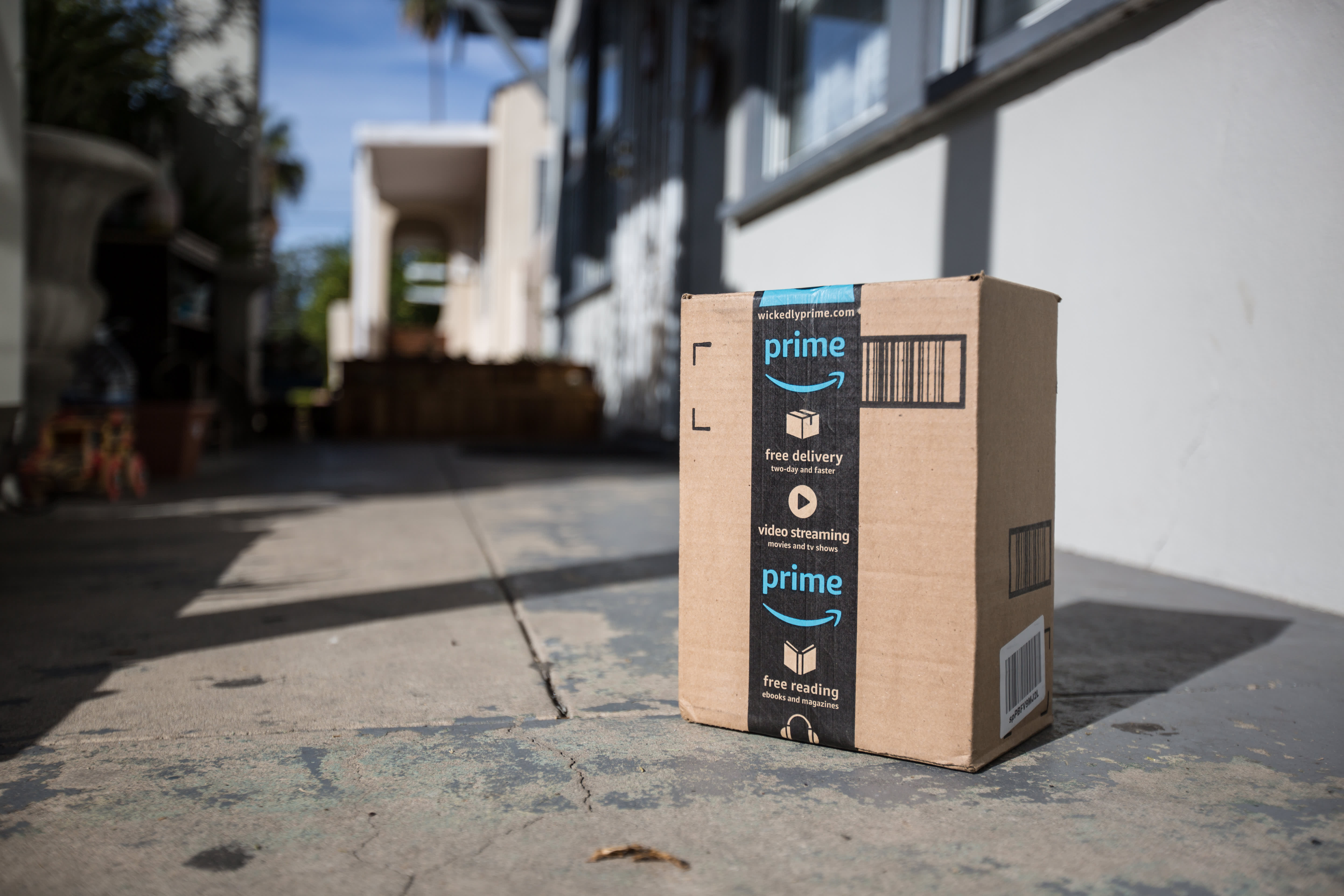
Image of an Amazon package.
Jorge Villalba | iStock Unreleased | Getty Images
Amazon has launched a new program that gives it full price control over select third-party products sold on its marketplace, as the company's pricing policy comes under heavier scrutiny.
Amazon started inviting third-party sellers to a new program called Sold by Amazon (SBA) last week, describing it as a "new, hands off the wheel selling experience." Sellers who sign up to the program give Amazon permission to cut the price of their products at will, in exchange for a guaranteed payout called Minimum Gross Proceed (MGP), to ensure the discounts don't result in an unexpected loss for them.
"Sellers choose which products to enroll in SBA, and once enrolled, these products are priced by Amazon," the company wrote in an invitation to sellers seen by CNBC. "To ensure peace of mind, for each SBA product, Amazon will provide a Minimum Gross Proceed (MGP) amount to protect your margins."
Amazon's representative told CNBC the SBA program is designed to "save time and increase sales by automating prices so they can consistently and effortlessly offer customers great prices." It's also meant to provide sellers "peace of mind that they will never receive less than the agreed upon amount for that product."
The new program could blunt criticism of Amazon's pricing policy, which has drawn scrutiny for possible antitrust concerns.
In December, Sen. Richard Blumenthal, D-Conn., questioned Amazon's price parity clause, which blocks sellers from offering lower prices at other retailers, saying it could "stifle market competition and artificially inflate prices on consumer goods." Amazon removed that clause in March, but its policy still states that it could suspend products or stop giving access to the all-important "buy box" button if the seller engages in a pricing practice that "harms customer trust."
Earlier this week, Bloomberg reported that Amazon's current price policy implicitly forces some sellers to raise prices on non-Amazon sites because they don't want to get kicked off its marketplace, which now accounts for almost 40% of the U.S. e-commerce market.
But sellers with SBA-listed products can now lower their prices on rival sites without fearing that Amazon will boot them from the marketplace, while also protecting themselves from massive losses.
"Sellers are giving up full control over pricing, and Amazon is lessening their anti-competitive liabilities," said Blair Anderson, managing director of Anderson & Associates, a firm that helps merchants sell on Amazon.
'Peace of mind'
For Amazon, the SBA is a low-risk initiative.
Amazon doesn't carry inventory for SBA-listed products. Instead, Amazon waits for each product to sell on its site, then buys the product from the seller and ships it. Waiting for sales also allows Amazon to choose and pick eligible products more efficiently based on customer interest.
Amazon likely doesn't lose much on the minimum payout either, as the payment gets renegotiated every six months.
Still, it could be costly early on for products that require significant price cuts. For example, if the seller agrees to a $20 MGP, and Amazon ends up selling it for $15, the seller will still receive the full $20 from Amazon, costing Amazon $5 for the transaction. If Amazon sells it for over $20 MGP, then the seller receives the higher sales price.
The end sales price is automatically determined using Amazon's pricing engine, and the company takes care of the costs associated with returns as well. No additional fees are required to enroll in the program, but the seller has to be the brand owner and be part of Fulfillment by Amazon (FBA), a paid program that gives sellers access to Amazon's warehouse and shipping services.
Amazon has launched similar programs before. Through a program called Discount Provided by Amazon, Amazon cuts prices of third-party sellers on its own, and then pays the sellers the difference between the discount and listing price. It also has a program that gives discounts on seller fees, which typically cost 15% of the sales price, in return for selling at Amazon's suggested price.
Marketplace consultants who spoke to CNBC said SBA has potential to appeal to some sellers because of the guaranteed payout. But important questions still need to be answered, including what types of products are accepted and how the minimum payment amount gets determined.
Also, some sellers still prefer controlling their sales price across all sales channels, they said.
"This could be appealing to some sellers who are trying to maintain margins while winning as many sales as possible via Amazon's lowest price," said Garrett Bluhm, VP of e-commerce at Pattern, a firm that sells and advises merchants on Amazon. "But I would suspect a low adoption rate starting out."
WATCH: The remarkable journey of an Amazon package
Read More




No comments: